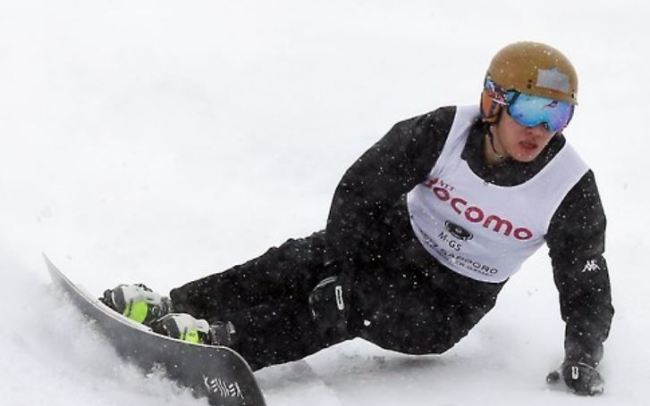South Korean alpine snowboarder Lee Sang-ho has a nickname that he can't shake off till this day.
Lee first started snowboarding at a sledding slope that was previously a cabbage patch. After he established himself in the snowboarding scene, "Napa Cabbage Boy" became his nickname.
Coincidently, PyeongChang, the host city of the 2018 Winter Olympics, is also known for fresh cabbages. With its cold weather, PyeongChang is widely regarded as the best place for highland agriculture in South Korea.
Lee hopes he can feed off the energy from a land known for cabbages and become the first South Korean to win an Olympic medal on snow. He will compete in the parallel giant slalom event, which pits two snowboarders on parallel courses and gives victory to the one that crosses the finish line first.
Lee is a native of Jeongseon, Gangwon Province, where Olympic alpine skiing events will be staged. But as a snowboarder, he'll have to perform at Bokwang Snow Park in PyeongChang, the venue for all snowboarding events during the Olympics.
 |
In this file photo taken Feb. 19, 2017, South Korean alpine snowboarder Lee Sang-ho competes in the men`s giant slalom at the Asian Winter Games in Sapporo, Japan. (Yonhap) |
Since South Korea first made its Winter Olympics appearance in 1948, all 53 of its medals have come from ice sports. At the PyeongChang Olympics, world No. 1 skeleton slider Yun Sung-bin is widely considered to deliver South Korea's first Olympic medal from non-ice sports. But if one argues that Yun is also an athlete who technically competes "on the ice" since sliding sports are played on icy tracks, Lee is considered one of South Korea's strongest hopes for an Olympic medal away from ice.
In the International Ski Federation World Cup rankings this season, Lee only sits at ninth in the PGS standings. But in the sport in which one hundredth of a second matters, he'll also have a shot to stand on the podium.
The 22-year-old has already done that once in the top-tier level. Last March, Lee became the first South Korean to win an FIS World Cup silver medal after finishing second at an event in Turkey. He and Choi Bo-gun, who earned bronze at the event, are the only two South Koreans to have a FIS World Cup medal.
At the World Championships, Lee finished fifth in the PGS competition, the best result ever by a South Korean.
Lee, who also has two gold medals from the 2017 Asian Winter Games in Japan, started this season with a win at the low-tier Europa Cup in Germany but showed inconsistent performances later. At the FIS World Cup in Rogla, Slovenia, on Sunday, he was seventh in the PGS competition.
Lee recently said he will not feel pressure from World Cup results, emphasizing it's just one of the preparations for the Olympics. Lee, however, wanted more fan support during the Olympics.
"I'm getting a lot of energy from fans," Lee said to reporters in PyeongChang, 180 kilometers east of Seoul. "I will do my best to meet their expectations and earn good results for their warm support." (Yonhap)








